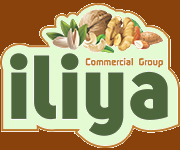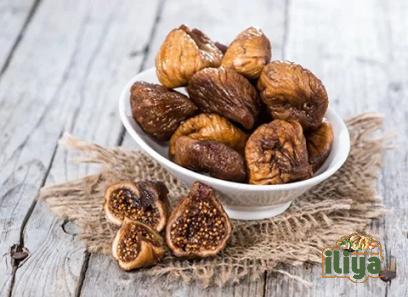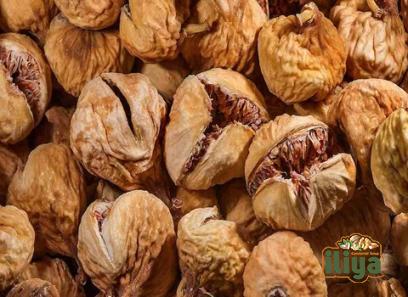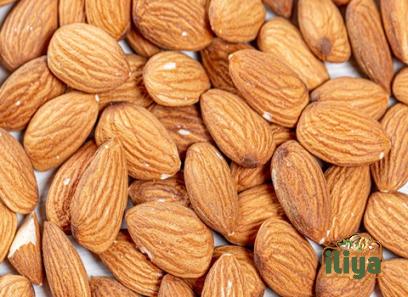Bulk hazelnuts in shell provide a versatile and nutritious ingredient that is widely used in various industries, including the food and confectionery sectors. With their distinct flavor, crunchy texture, and numerous health benefits, hazelnuts are a popular choice among consumers worldwide. This article aims to explore the benefits and market potential of bulk hazelnuts in shell, highlighting their nutritional value, culinary applications, and commercial opportunities.
1. Nutritional Value of Hazelnuts:
Bulk hazelnuts in shell are packed with essential nutrients, making them a wholesome addition to any diet. They are an excellent source of healthy fats, protein, fiber, vitamins (such as vitamin E and B-complex), minerals (such as magnesium, calcium, and iron), and antioxidants. Hazelnuts are also low in sodium and cholesterol, making them heart-healthy and beneficial for maintaining overall well-being.
2. Culinary Applications:
Bulk hazelnuts in shell offer a wide range of culinary possibilities, with their naturally rich flavor, aroma, and pleasant crunch. Some popular culinary applications of hazelnuts include:
a. Baking: Hazelnuts are often used in baking, adding a delightful taste and texture to pastries, cakes, cookies, and bread.
b. Confectionery: Hazelnuts are a key ingredient in various confectioneries, including pralines, chocolate spreads, and nut-based candies.
c. Snack Foods: Roasted hazelnuts in shell make for a healthy and enjoyable snack option.
d. Ingredient in Savory Dishes: Hazelnuts can be incorporated into savory dishes, such as salads, pasta, and meat dishes, adding a nutty and delicious twist.
e. Nut Butters: Hazelnuts are the primary component in hazelnut butter, a popular alternative to peanut butter.
3. Health Benefits:

Bulk hazelnuts in shell offer numerous health benefits, making them an attractive choice for health-conscious consumers. Some key benefits include:
a. Heart Health: The healthy fats, fiber, and antioxidants present in hazelnuts can help reduce the risk of heart disease by improving cholesterol levels and supporting cardiovascular health.
b. Nutrient Density: Hazelnuts are a rich source of essential nutrients, vitamins, and minerals, contributing to overall well-being and supporting optimal bodily functions.
c. Antioxidant Properties: Hazelnuts contain high levels of antioxidants, such as vitamin E, which help protect the body against free radicals and oxidative stress.
d. Weight Management: Despite being calorie-dense, the combination of healthy fats, fiber, and protein in hazelnuts can help promote satiety and aid in weight management.
e. Bone Health: The calcium, magnesium, and phosphorus content in hazelnuts contribute to healthy bone development and bone density.
4. Market Potential and Commercial Opportunities:
Bulk hazelnuts in shell present a promising market potential, fueled by the growing demand for healthy, natural, and sustainable food products. The global hazelnut market has witnessed significant growth, driven by both domestic consumption and international trade.
a. Confectionery and Snack Industries: The confectionery and snack industries are key consumers of bulk hazelnuts in shell, utilizing them in a range of products such as chocolates, spreads, bars, and roasted snacks.
b. Baking and Culinary: Hazelnuts are widely used in the baking and culinary sectors, providing ample opportunities for ingredient suppliers, bakeries, and food manufacturers.
c. Nut Butter Industry: The popularity of nut-based spreads, including hazelnut butter, is increasing, creating a lucrative market for bulk hazelnuts.
d. Health Food and Nutritional Supplements: Bulk hazelnuts in shell can be used in the production of health foods, granola bars, protein powders, and dietary supplements, catering to the growing health-conscious consumer base.

5. Sustainability and Sourcing:
As a key consideration for buyers, the sustainability of hazelnut production is crucial. Suppliers and producers are increasingly focusing on sustainable sourcing practices, ensuring responsible farming, reducing environmental impacts, and promoting fair trade. This sustainable approach not only aligns with consumer expectations but also enhances the marketability of bulk hazelnuts in shell.
Conclusion:
Bulk hazelnuts in shell provide an array of culinary possibilities and numerous health benefits, making them an appealing ingredient for various industries. Their nutritional value, versatility, and growing market potential make them an excellent choice for businesses looking to incorporate natural and sustainable ingredients into their products. With increased consumer awareness and a focus on health-conscious options, the demand for bulk hazelnuts in shell is expected to continue rising, presenting lucrative opportunities for suppliers, manufacturers, and entrepreneurs in the global food market.I. Hazelnuts: A Growing Market Trend
Hazelnuts, also known as filberts, have gained significant popularity in recent years due to their unique flavor, nutritional benefits, and versatile applications. This surge in demand is driven by consumer preferences for healthier, natural, and sustainably sourced ingredients. The global market for bulk hazelnuts in shell is expanding, presenting lucrative business opportunities for suppliers, manufacturers, and entrepreneurs.
II. Global Hazelnut Market Overview
The global hazelnut market is witnessing continuous growth, driven by both domestic consumption and international trade. According to market analysts, the market is projected to register a CAGR of around 8% during the forecast period. Key factors supporting this growth are increasing health consciousness among consumers, rising demand for natural and plant-based ingredients, and the versatility of hazelnuts in various industries.
III. Confectionery and Snack Industries
The confectionery and snack industries are major consumers of bulk hazelnuts in shell. Hazelnuts are widely used in the production of chocolates, chocolate spreads, pralines, and nut-based candies, offering a distinctive taste and texture. They also provide an added value with their aesthetically pleasing appearance when used as toppings and decorations. Manufacturers in the confectionery sector can benefit from incorporating bulk hazelnuts into their product lineups to cater to consumer preferences for indulgent yet healthier options.
IV. Baking and Culinary Sector
Hazelnuts are a popular ingredient in the baking and culinary sectors due to their rich nutty flavor and crunchy texture. They are often incorporated into pastries, cakes, cookies, bread, and other baked goods, adding depth and character to the final product. Hazelnuts can also be ground into a meal or chopped finely to be used as a coating for meats, fish, or vegetables. This presents a significant opportunity for bulk hazelnuts in shell suppliers to cater to the needs of bakeries, restaurants, and food manufacturers.
V. Nut Butter Industry

The popularity of nut-based spreads has surged in recent years, with hazelnut butter gaining prominence as a healthier alternative to traditional peanut butter. Hazelnut butter is made by roasting bulk hazelnuts, removing the shells, and grinding them into a smooth or crunchy spread. This niche market offers excellent prospects for entrepreneurs and businesses looking to venture into the production of nut butters.
VI. Health Food and Nutritional Supplements
The demand for health foods and nutritional supplements is on the rise globally, fueled by a growing awareness of the importance of a balanced diet and overall well-being. Bulk hazelnuts in shell serve as an excellent ingredient for dietary supplements, protein powders, granola bars, and other health-centric products. Its high nutritional value, antioxidants, and healthy fats make it an attractive option for those seeking natural and nutrient-dense food options.
VII. Sourcing and Sustainability
Sustainability has become a key factor in the sourcing and production processes of hazelnuts. Consumers are increasingly concerned about the environmental impact of food production and ethical practices in the supply chain. Therefore, hazelnut suppliers and producers are implementing sustainable farming practices, reducing water usage, conserving soil health, and promoting fair trade. By prioritizing sustainability, businesses can not only ensure a stable supply chain but also appeal to eco-conscious consumers.
VIII. Hazelnut Production and Major Exporting Regions
Turkey is the largest producer and exporter of hazelnuts, accounting for over 70% of the global market share. Other major hazelnut-producing countries include Italy, the United States, Georgia, and Azerbaijan. These countries offer excellent opportunities for businesses in the hazelnut industry to establish partnerships, source high-quality bulk hazelnuts, and meet the increasing demand.
IX. Challenges in the Hazelnut Industry
While the hazelnut industry presents significant growth potential, it also faces challenges that need to be addressed. One such challenge is weather-related risks, as hazelnut trees require specific climatic conditions for optimal growth. Additionally, market fluctuations, price volatility, and competition from other nut varieties can pose challenges for businesses operating in this sector. It is crucial for businesses to assess and mitigate these challenges to ensure long-term success.
X. Marketing and Distribution
Effective marketing strategies and efficient distribution channels play a crucial role in the success of businesses in the bulk hazelnut industry. Developing strong branding, highlighting the nutritional benefits, and creating awareness about the various culinary applications of hazelnuts can help attract customers. Businesses can also consider collaborating with retailers, wholesalers, and e-commerce platforms to ensure wider market reach and accessibility for consumers.
XI. Quality Control and Food Safety

Maintaining high standards of quality control and food safety is paramount in the hazelnut industry. Implementing stringent quality checks, ensuring adherence to international food safety standards, and regularly auditing suppliers and processing facilities are vital to maintain product integrity. Businesses can also consider obtaining relevant certifications, such as Hazard Analysis and Critical Control Points (HACCP) and Good Manufacturing Practices (GMP), to demonstrate their commitment to quality and safety.
XII. Conclusion
Bulk hazelnuts in shell offer a range of culinary possibilities, excellent health benefits, and a growing market potential. As consumers increasingly opt for healthier, natural, and sustainably sourced ingredients, the demand for hazelnuts continues to rise. Businesses in the confectionery, baking, nut butter, and health food sectors can leverage this growing trend by incorporating bulk hazelnuts in shell into their product offerings. By developing strong marketing strategies, prioritizing sustainability, and maintaining high-quality standards, businesses can capitalize on the expanding global market for hazelnuts and position themselves for long-term success.










